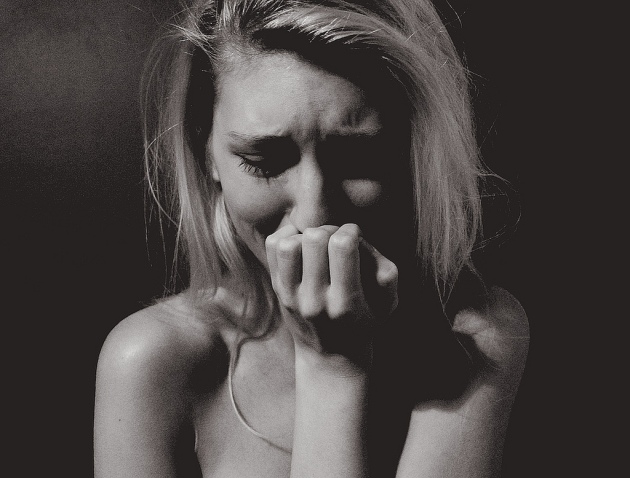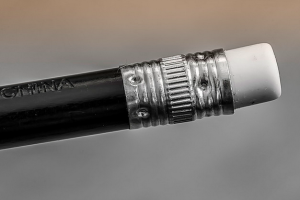 Yesterday, I cried on the platform of Metro North a few minutes before the train arrived to pick up me and my boyfriend and bring us to meet my parents and sisters for dinner. There wasn’t anything terribly wrong, except I’d bought my sisters presents and he had forgotten to bring the shopping bag with him.
Yesterday, I cried on the platform of Metro North a few minutes before the train arrived to pick up me and my boyfriend and bring us to meet my parents and sisters for dinner. There wasn’t anything terribly wrong, except I’d bought my sisters presents and he had forgotten to bring the shopping bag with him.
“I’m so sorry,” he said. “I’m such a dummy.”
“It’s fine,” I told him.
But then I looked away, and I just started to well up with sadness. I’m not normally one to get mad about something as insignificant as a shopping bag left at the apartment, but all of a sudden, there on the platform yesterday, his forgetting of the gift was in my mind indicative of a larger problem in our relationship. I was irrationally angry at him. And even though I knew the anger was irrational, I felt it as deeply as any anger I’ve ever felt. I also felt a clawing sadness inside my chest because everything felt wrong. I didn’t want to go to dinner. I hated my job. My co-workers, for the most part, were completely incompetent. Let’s face it: my whole life was a disaster.
One thing I did know, and I knew this yesterday–in the back of my mind– when I wrote a post about moods and bipolar disorder (though I wasn’t really admitting it), was that I was about to get my period.
Back when I was too young to understand what a period really was, I remember my mother standing in front of the sink washing dishes in a state of sadness, telling me that she was going to feel fine “the minute she got her period.” I think I was around ten years old at the time, and I sort of knew what a period was, but not really. It had something to do with going to the bathroom and blood. But I couldn’t fathom what it had to do with making her feel better. Years later, after my late-bloomer body decided to finally deliver my period to me months after I earned my driver’s license, I still didn’t understand what she meant.
It wasn’t until I was out of college that I began to suffer from PMS and experience the strange feeling of overwhelming relief, as if the heavens had opened up and delivered me into this hallowed hall of happiness, where my pulse quickened with creative energy and the cobwebs in my mind cleared away, that I understood what she meant. Life sucked, and then I got my period and it was better again. My other bipolar mood swings felt unpredictable, but this was one I could count on.
By the time I was in my early 20s, I was managing as best I could with medication. With the help of a patient boyfriend, I got enough sleep to not let my flights into hypomania get so out of hand that I lost my job or did something really stupid. But we had very loud, overblown fights in the first year of that relationship. At one point, as I flew into a rage about something insignificant, he said, “Have you noticed we almost break up every month, right before you get your period?”
What he said hit me right in the gut because I’d never considered breaking up. But he was clearly suffering as much as I was.
With the help of a good gynecologist, I went on a birth control pill that worked for a number of years to calm down my previously stormy PMS. And with the help of my psychiatrist, extra Wellbutrin in the morning the week before my period helped boost my mood and keep the PMS at bay. That worked for a while. But since then I’ve switched birth control.
About a year ago, I tried the NuvaRing. It worked like a charm for a while, and then it didn’t. I found myself sobbing for no reason, wanting to pick fights with everyone, right before it was time to take the ring out at the end of my cycle.
The funny thing about living with bipolar disorder and PMS is that, like cousins raised in separate countries, the two disorders, syndromes–whatever you want to call them– are related, yet so different. When I’m in a depression, I slow down and feel a kind of existential pain that makes it hard to understand how anyone even makes it from one day to the next because life is so dark and meaningless. When I have PMS, it’s like depression, spiked with mania. I’m angry and sad. And it’s a different kind of sadness, a sadness that’s so close to the surface, it bubbles up at a moment’s notice.
The smallest incident–a shopping bag left at home–leads to sobbing.
And so last month I switched from NuvaRing to a birth control pill called Loestrin. This is only my first month on the new pill. The specialist doctor I saw who prescribed this told me the end of the month might be rough like this, and that if it proved to be this way for a couple months, we could start a routine where I just skip the placebos all together so I don’t have any hormone dip at all.
For now, here I am, this morning, able to write this with a feeling of relief. Because as it turns out–and I know this is too much information, but I think it’s relevant– I got my period this morning.
 I just walked out of the apartment and ran into my super on the sidewalk. He looked at me, confused, like I was some kind of puzzle he couldn’t figure out.
I just walked out of the apartment and ran into my super on the sidewalk. He looked at me, confused, like I was some kind of puzzle he couldn’t figure out.